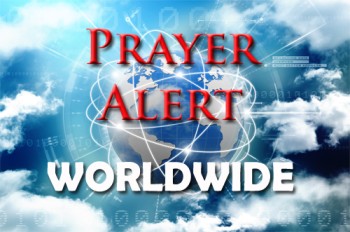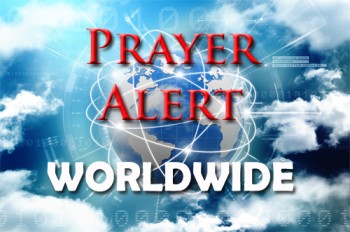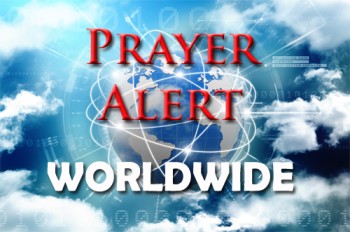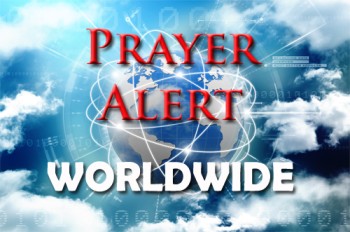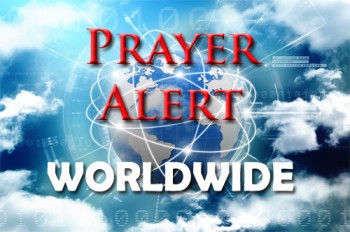
David Fletcher
David Fletcher is Prayer Alert’s Editor.
He is part of a voluntary team who research, proof-read and publish Prayer Alert each week.
If you would like to make a donation towards our running costs, please click here.
North Macedonia is in mourning after a devastating nightclub fire in Kočani killed 59 people, most of them young. As grief turns to anger, thousands have taken to the streets demanding justice and an end to corruption. The nightclub, Pulse, was found to have been operating illegally with an invalid licence obtained through bribery. Safety violations, including a lack of fire exits, an inflammable ceiling, and no fire alarm, contributed to the disaster; there might have been 1,500 in the venue, which had an official capacity of 250. Many victims perished in the crush as they tried to escape. Authorities have detained twenty individuals, including a former economy minister and state officials. The government has declared seven days of mourning, while protests continue across the country, pressuring officials to address corruption. Prime minister Hristijan Mickoski vowed swift justice, calling the situation ‘shocking’. Continuing protests are putting further pressure on the government to stop the corruption which has now cost the 1.8-million strong nation so many young lives.
Israel has launched a ‘limited ground operation’ to retake the Netzarim corridor in Gaza, escalating the conflict after the ceasefire agreement with Hamas collapsed. The corridor, previously used by Israeli forces, had been vacated as part of the truce. Meanwhile, a Bulgarian UN worker has been killed, and five others, including a British man, were wounded in a strike on a UN guesthouse in Gaza. Israel denies responsibility, saying that an initial investigation found ‘no connection’ between the strike and the Israel Defence Forces (IDF). The UN has condemned the attack on its personnel. The Gaza health ministry says that at least 436 people have been killed since Israel launched the fresh wave of airstrikes, though Israel disputes the accuracy of those figures, maintaining that it targets militants, not civilians.
More than eighty Afghan women studying in Oman on US-funded scholarships have received a temporary extension of support until 30 June, after an abrupt funding cut by the Trump administration. The scholarships, provided through USAID, were crucial for students who fled Afghanistan, where the Taliban has banned women from higher education. The students expressed relief but remain uncertain about their future, fearing forced return to Afghanistan, where they would face severe restrictions and potential persecution. The US government has not confirmed whether long-term funding will be restored, and efforts are under way to secure alternative financial support. The Taliban claim to be addressing women’s education but continue to enforce oppressive policies. They have cracked down on women protesting about those policies, with many activists beaten, detained and threatened.
After an unexpected nine-month extension aboard the International Space Station (ISS), NASA astronauts Sunita Williams and Barry Wilmore safely returned to Earth on Tuesday. They splashed down off Florida’s coast in a SpaceX Dragon capsule alongside Crew-9 members Nick Hague and Russian cosmonaut Aleksandr Gorbunov. Their re-entry, a critical phase of space travel, was successfully completed, and recovery crews swiftly assisted them upon landing. Their return was delayed due to issues with Boeing’s Starliner spacecraft, which forced them to remain on the ISS beyond their planned stay. The astronauts rejected claims that they were ‘stranded’ or ‘abandoned’; they knew things could go wrong on a test mission. Donald Trump has blamed the Biden administration for mishandling the situation, but both astronauts assured they were never in danger. Their safe return marks another milestone in space exploration and international collaboration aboard the ISS.
On 18 March Somalia’s president, Hassan Sheikh Mohamud, narrowly survived a roadside bombing in Mogadishu. The massive explosion killed at least ten people, including several presidential bodyguards and one journalist. Al-Shabaab claimed responsibility, highlighting security vulnerabilities as the militant group advances toward Mogadishu. The attack occurred while the president was traveling to oversee military operations against the terrorist group. Following the bombing, Somali police briefly shut down a local radio station and detained 22 journalists who reported the attack. Police allegedly deleted their footage before releasing them. The group, linked to al-Qaeda, has vowed to capture the capital before June, intensifying concerns over regional stability; they are advancing towards Balcad, only thirty kilometres away.
Two beaches in South Australia have been closed after dead fish and an off-white foam appeared onshore, while surfers reported feeling unwell. Authorities suspect that a microalgal bloom, fuelled by unusual weather, has caused these problems. Environmental scientist Sam Gaylard called the event ‘concerning’ due to its scale. The two beaches, south of Adelaide, were shut down on 17 March. Surfers reported symptoms like sore eyes, throats, and coughing. Marine scientists have collected foam samples, though identifying the organism may take days. It is not certain how long this situation will last: the algae, probably triggered by extended hot, dry weather and calm seas, might be dispersed by increasing swells.
A thirty-day state of emergency has been declared in Lima following a surge in violent crime. President Dina Boluarte’s government made the decree after the murder of popular cumbia singer Paul Flores, who was killed in an attack on a bus. The move allows police and military forces to detain suspects with fewer restrictions, limiting freedoms of assembly and movement. The decision follows weeks of rising violence, including an explosion at a restaurant that injured eleven people. There have been 459 killings so far this year, and nearly 2,000 extortion cases in January alone. Boluarte has raised the possibility of the death penalty for murderers, though at present Peruvian law only permits it for treason. Opposition lawmakers are demanding a no-confidence vote against the interior minister, accusing him of failing to curb crime. Public outrage remains high as Peru struggles to restore security.
Open Doors has warned that false online reports about a Christian massacre in Syria could put Syrian believers at greater risk. While recent violence in Latakia and Tartus has killed over 1,500 people, including four Christians, there is no evidence that believers were specifically targeted for their faith. An Open Doors representative cautioned that misinformation could have serious consequences. He noted that governments and armed groups monitor online discussions, and false claims could lead to further persecution of Christians who had no involvement in spreading such reports. Though this latest wave of violence has not directly targeted Christians, Syrian believers - especially those who have converted from Islam - already face persecution. Many are fearful and some are considering fleeing the country. Churches in some regions have even cancelled services due to security concerns.
In February, 7 million people from 225 countries joined Gather25, a 25-hour global prayer event led by Jennie Allen. Live gatherings in multiple locations and over 21,000 small groups united believers in worship, prayer, and repentance. Allen shared that the vision for Gather25 began with a vivid dream, pressing an urgency upon her to spread the Gospel as widely and quickly as possible. She saw an opportunity to mobilise the global Church in prayer, relying on cutting-edge AI translation technology to overcome language barriers. She described the event as a modern-day Pentecost, where, for the first time, believers worldwide gathered without linguistic obstacles. Despite concerns over AI, she emphasised that God is using technology to advance Bible translation and global evangelism. Stories of faith, including testimonies from former child soldiers in Africa, moved Allen deeply. Reflecting on the event’s impact, she declared, 'We are the fish and loaves story.'
A fresh move of God is sweeping across the UK, with increasing reports of prayer gatherings, healings, and spiritual renewal. Pastor Craig Cooney of Hope Church, Northern Ireland, describes it as 'a rising river', signaling the end of the spiritual drought caused by the pandemic. He notes that weekly prayer meetings are growing, with believers interceding passionately for the lost. Testimonies of divine healings are becoming more frequent, even among those previously skeptical. In England, Rev Liz Doyle recently prayed with British leaders inside Windsor Castle, sensing God’s promise to bring revival to St George’s Chapel. Scotland, too, is experiencing breakthrough: Franklin Graham’s Glasgow event saw over 7,000 people attend, with many surrendering to Christ. This revival mirrors Elijah’s servant seeing a cloud the size of a man’s hand - a sign of greater things to come. God is calling His people to prayer, consecration, and deeper commitment. See



